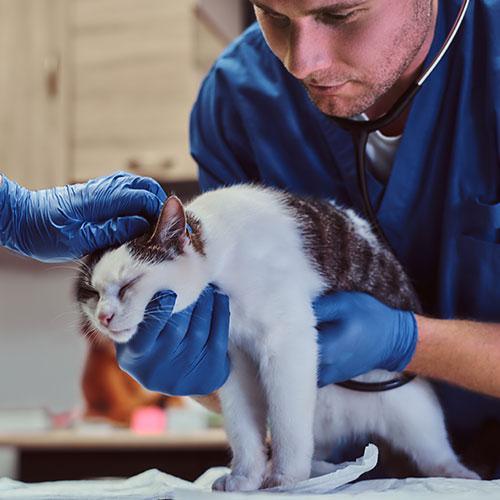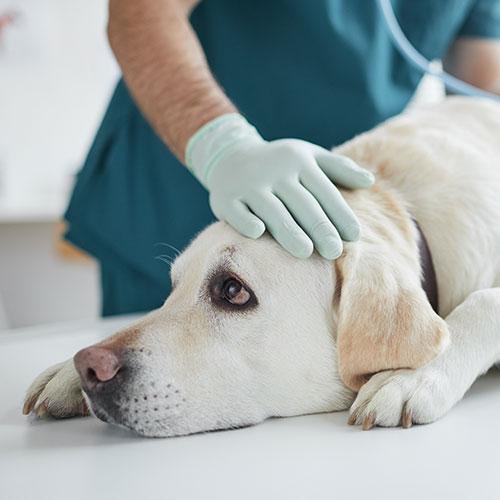Younger and senior animals, as well as animals battling illness, risk suffering from hypothermia. Veterinarians prioritize the health and safety of patients bordering the risk, as hypothermia can lead to heart failure, kidney failure, and death.

Veterinary staff must strategically treat hypothermia among their four-legged patients. Think about it. When humans suffer from hypothermia, doctors cover them with blankets, remove any wet clothing, and use warm compresses to bring the body back to a healthy temperature.
But animals wear a coat that doctors can’t remove. Dogs usually have three layers of fur, varying in breeds, with several hairs growing out of one follicle. Treating a wet dog is almost equivalent to treating a patient wearing three soaked cable-knit sweaters.
Phil Zeltzman, DVM, Dipl. ACVS wrote “25 Ways Staff Members Can Prevent Hypothermia,” outlining methods from wrapping paws in foil, to one of the most effective techniques - methodically pumping warm IV fluid to the patient.
Looking for a reliable IV fluid warmer? Check out AIV's to effectively prevent hypothermia in your patients.
IVetMATE IV Fluid Warmer
IS YOUR VETERINARY CLINIC EQUIPPED TO TREAT HYPOTHERMIA?
Level up your arsenal from blankets and hot packs with an IVetMATE Fluid Warmer, manufactured in the USA and tested to provide accurate fluid temperatures at various flow rates.
Put the focus on your patients, where it belongs. We worry about the equipment so you don’t have to.

ABOUT THE AUTHOR

Laura Collier
Laura Collier has a Bachelor’s Degree in Communications and a Master’s Degree in Business Administration from the University of North Florida. She is the Marketing Manager at AIV, Inc.
FOUNDING PARTNER OF

VET SHOWS WE ATTEND




TESTIMONIALS
"I also wanted to heap praise on your repair techs. It's nice to get repairs that stay repaired after 6 months. I have stuff that was repaired 3 years ago that has never given me problems again. Other places just seem to patch it together and then it breaks again as soon as the warranty is up. Between horses enjoying knocking over IV poles, and dogs who enjoy chewing on things, our equipment is sometimes in pretty bad shape. Your techs take the time to check and fix all of the parts that might be damaged from this type of treatment, and I and the animals here appreciate it."
Tell Bailey
Colorado State University Veterinary School
"My technicians really like your fluid warmer and feel that it keeps the patients a few degrees warmer versus not using it. After we trialed it they were begging for more fluid warmers so it must work."
Dr. Dan Degner
Animal Surgery Center of Michigan